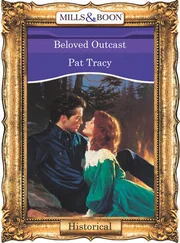When suddenly she had stopped coming, Lady Jones thought it was the nickel. She approached the ignorant grandmother one day on the road, a woods preacher who mended shoes, to tell her it was all right if the money was owed. The woman said that wasn't it; the child was deaf, and deaf Lady Jones thought she still was until she offered her a seat and Denver heard that.
"It's nice of you to come see me. What brings you?"
Denver didn't answer.
"Well, nobody needs a reason to visit. Let me make us some tea."
Lady Jones was mixed. Gray eyes and yellow woolly hair, every strand of which she hated-though whether it was the color or the texture even she didn't know. She had married the blackest man she could find, had five rainbow-colored children and sent them all to Wilberforce, after teaching them all she knew right along with the others who sat in her parlor. Her light skin got her picked for a coloredgirls', normal school in Pennsylvania and she paid it back by teaching the unpicked. The children who played in dirt until they were old enough for chores, these she taught. The colored population of Cincinnati had two graveyards and six churches, but since no school or hospital was obliged to serve them, they learned and died at home. She believed in her heart that, except for her husband, the whole world (including her children) despised her and her hair. She had been listening to "all that yellow gone to waste" and "white nigger" since she was a girl in a houseful of silt-black children, so she disliked everybody a little bit because she believed they hated her hair as much as she did. With that education pat and firmly set, she dispensed with rancor, was indiscriminately polite, saving her real affection for the unpicked children of Cincinnati, one of whom sat before her in a dress so loud it embarrassed the needlepoint chair seat.
"Sugar?"
"Yes. Thank you." Denver drank it all down.
"More?"
"No, ma'am."
"Here. Go ahead."
"Yes, ma'am."
"How's your family, honey?"
Denver stopped in the middle of a swallow. There was no way to tell her how her family was, so she said what was at the top of her mind.
"I want work, Miss Lady."
"Work?"
"Yes, ma'am. Anything."
Lady Jones smiled. "What can you do?"
"I can't do anything, but I would learn it for you if you have a little extra."
"Extra?"
"Food. My ma'am, she doesn't feel good."
"Oh, baby," said Mrs. Jones. "Oh, baby."
Denver looked up at her. She did not know it then, but it was the word "baby," said softly and with such kindness, that inaugurated her life in the world as a woman. The trail she followed to get to that sweet thorny place was made up of paper scraps containing the handwritten names of others. Lady Jones gave her some rice, four eggs and some tea. Denver said she couldn't be away from home long because of her mother's condition. Could she do chores in the morning? Lady Jones told her that no one, not herself, not anyone she knew, could pay anybody anything for work they did themselves.
"But if you all need to eat until your mother is well, all you have to do is say so." She mentioned her church's committee invented so nobody had to go hungry. That agitated her guest who said, "No, no," as though asking for help from strangers was worse than hunger.
Lady Jones said goodbye to her and asked her to come back anytime.
"Anytime at all."
Two days later Denver stood on the porch and noticed something lying on the tree stump at the edge of the yard. She went to look and found a sack of white beans. Another time a plate of cold rabbit meat. One morning a basket of eggs sat there. As she lifted it, a slip of paper fluttered down. She picked it up and looked at it.
"M. Lucille Williams" was written in big crooked letters. On the back was a blob of flour-water paste. So Denver paid a second visit to the world outside the porch, although all she said when she returned the basket was "Thank you."
"Welcome," said M. Lucille Williams.
Every now and then, all through the spring, names appeared near or in gifts of food. Obviously for the return of the pan or plate or basket; but also to let the girl know, if she cared to, who the donor was, because some of the parcels were wrapped in paper, and though there was nothing to return, the name was nevertheless there. Many had X's with designs about them, and Lady Jones tried to identify the plate or pan or the covering towel. When she could only guess, Denver followed her directions and went to say thank you anywaym whether she had the right benefactor or not. When she was wrong, when the person said, "No, darling. That's not my bowl. Mine's got a blue ring on it," a small conversation took place. All of them knew her grandmother and some had even danced with her in the Clearing.
Others remembered the days when 124 was a way station, the place they assembled to catch news, taste oxtail soup, leave their children, cut out a skirt. One remembered the tonic mixed there that cured a relative. One showed her the border of a pillowslip, the stamens of its pale blue flowers French-knotted in Baby Suggs' kitchen by the light of an oil lamp while arguing the Settlement Fee. They remembered the party with twelve turkeys and tubs of strawberry smash.
One said she wrapped Denver when she was a single day old and cut shoes to fit her mother's blasted feet. Maybe they were sorry for her. Or for Sethe. Maybe they were sorry for the years of their own disdain. Maybe they were simply nice people who could hold meanness toward each other for just so long and when trouble rode bareback among them, quickly, easily they did what they could to trip him up. In any case, the personal pride, the arrogant claim staked out at 124 seemed to them to have run its course. They whispered, naturally, wondered, shook their heads. Some even laughed outright at Denver's clothes of a hussy, but it didn't stop them caring whether she ate and it didn't stop the pleasure they took in her soft "Thank you."
At least once a week, she visited Lady Jones, who perked up enough to do a raisin loaf especially for her, since Denver was set on sweet things. She gave her a book of Bible verse and listened while she mumbled words or fairly shouted them. By June Denver had read and memorized all fifty-two pages-one for each week of the year.
As Denver's outside life improved, her home life deteriorated. If the whitepeople of Cincinnati had allowed Negroes into their lunatic asylum they could have found candidates in 124. Strengthened by the gifts of food, the source of which neither Sethe nor Beloved questioned, the women had arrived at a doomsday truce designed by the devil. Beloved sat around, ate, went from bed to bed. Sometimes she screamed, "Rain! Rain!" and clawed her throat until rubies of blood opened there, made brighter by her midnight skin. Then Sethe shouted, "No!" and knocked over chairs to get to her and wipe the jewels away. Other times Beloved curled up on the floor, her wrists between her knees, and stayed there for hours. Or she would go to the creek, stick her feet in the water and whoosh it up her legs.
Afrerward she would go to Sethe, run her fingers over the woman's teeth while tears slid from her wide black eyes. Then it seemed to Denver the thing was done: Beloved bending over Sethe looked the mother, Sethe the teething child, for other than those times when Beloved needed her, Sethe confined herself to a corner chair. The bigger Beloved got, the smaller Sethe became; the brighter Beloved's eyes, the more those eyes that used never to look away became slits of sleeplessness. Sethe no longer combed her hair or splashed her face with water. She sat in the chair licking her lips like a chastised child while Beloved ate up her life, took it, swelled up with it, grew taller on it. And the older woman yielded it up without a murmur.
Читать дальше











